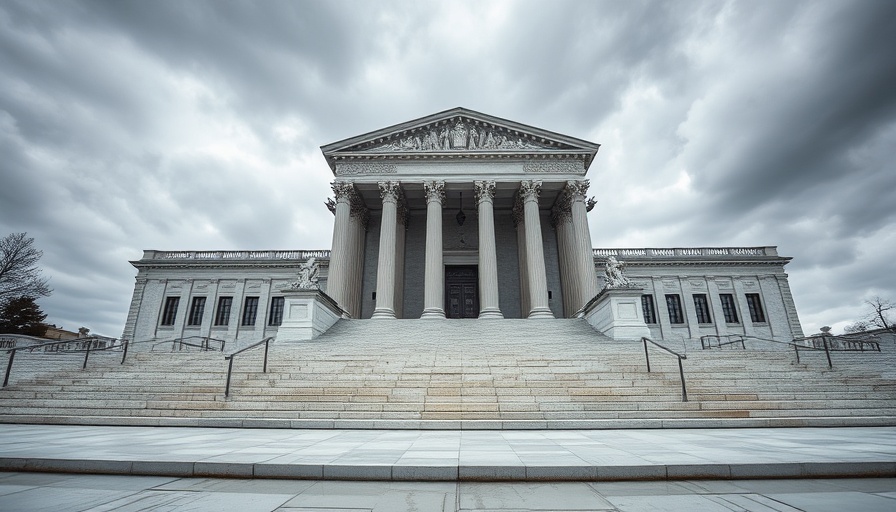
Supreme Court Upholds Tennessee’s Ban on Youth Gender-Affirming Care
The recent decision by the Supreme Court to uphold Tennessee's ban on youth gender-affirming care has sent ripples through the medical and legal communities. With a 6-3 vote, the Court has leaned into a controversial topic that touches not only on healthcare but also on the rights of transgender youths and their families.
The Legal Landscape: Background of the Case
The law in question, known as SB1, prohibits any healthcare provider in Tennessee from offering puberty blockers or hormone therapies to minors who identify as transgender. Chief Justice John Roberts stated in the majority opinion that this ruling suggests that the debate surrounding youth gender-affirming care should be left to the “people, their elected representatives, and the democratic process.” This ruling conveys the Court's inclination toward allowing states to devise their own policies regarding medical treatments for minors, particularly in sensitive areas such as gender identity.
Understanding Gender Dysphoria: The Medical Community’s Stance
Gender dysphoria is a recognized medical condition wherein an individual feels a disconnect between their assigned biological sex and their gender identity. Major medical organizations, including the American Academy of Pediatrics, advocate for access to gender-affirming care as crucial for the mental health and well-being of transgender youths. They argue that puberty blockers and hormone therapies can be life-saving, as many studies support their efficacy in improving mental health outcomes and quality of life for transgender individuals.
The Implications of the Ruling: Societal Reactions and Concerns
In the dissenting opinion, Justice Sonia Sotomayor opposed the ruling, arguing that it fails to protect the rights of all minors, highlighting a potential discrimination based on sex. The ruling has ignited significant public discourse, with advocates for transgender rights expressing concern that such bans may exacerbate mental health challenges for affected youths. By legalizing restrictions on gender-affirming care, critics worry it could lead to an increase in suicide rates among transgender teens.
Counterarguments: The Justifications for the Ban
The state of Tennessee maintains that its ban protects children from what it perceives as unproven medical interventions. Backing this assertion is a claim that the evidence supporting these medical treatments is “remarkably weak.” This perspective resonates with more conservative factions, drawing support from groups that prioritize parental rights and child welfare concerns in the context of medical decision-making.
Future Predictions: What Lies Ahead for LGBTQ+ Healthcare?
This judgment could likely set a precedent for other states considering similar legislation, altering the landscape of transgender healthcare across the country. Health and wellness companies advocating for these treatments may have to adapt to emerging state regulations that impact how they deliver care. Meanwhile, the national conversation regarding LGBTQ+ rights and healthcare access is expected to intensify, underscoring the importance of advocacy, education, and awareness around these critical issues in our society.
Community Health and Wellness: A Focus on Accessibility
Ensuring access to comprehensive healthcare services, including youth gender-affirming care, remains a vital issue for community health and wellness initiatives. Local health centers and wellness organizations in places like San Antonio must take proactive steps in addressing disparities—both in physical health access and mental health support—for all youths, particularly those in marginalized communities. With heightened awareness, communities can foster environments that prioritize optimal health and wellness for everyone.
Concluding Thoughts: The Importance of Staying Informed
The Supreme Court's ruling highlights the ongoing battle between state rights and individual healthcare freedoms. As this debate continues, it’s essential for communities, families, and individuals to remain informed and engaged. Advocacy for equitable health and wellness access is crucial in ensuring all individuals receive the care they need, irrespective of their gender identity.
Consider taking steps to educate yourself about local health and wellness initiatives and advocating for policies that promote inclusive and comprehensive healthcare solutions for all, especially vulnerable populations like transgender youths.
 Add Element
Add Element  Add Row
Add Row 




Write A Comment